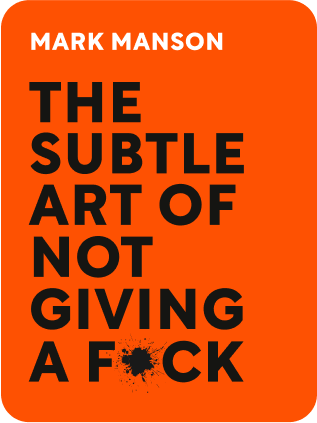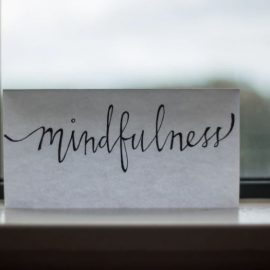

This article is an excerpt from the Shortform book guide to "The Subtle Art of Not Giving a F*ck" by Mark Manson. Shortform has the world's best summaries and analyses of books you should be reading.
Like this article? Sign up for a free trial here .
Why is it better to be open to change rather than feeling certain about about our conclusions? Why can flawed logic be so dangerous?
Our brain naturally tries to come to conclusions and make connections, but many times those conclusions are wrong. If we don’t remain open to the possibility that we’re wrong, then, in extreme cases, our flawed logic could lead us to hurting others.
Keep reading to learn about the dangers of flawed logic.
Creating Our Own (Flawed) Logic
Our brain is always working to make connections and associations between different experiences in order to create meaning. We tend to convince ourselves that our conclusions are correct, but many times they are just flawed logic.
Here’s an extreme example of how this occurs. Volunteers in an experiment were told to push buttons to make a light turn on. They didn’t realize that nothing they did would actually have an impact, because the light came on at random. Nonetheless, they came up with elaborate strategies based on what they were doing when the light turned on; they were convinced they had cracked the code. The experiment showed how readily people can come up with bogus processes and explanations.
Our minds generate meaning from our experiences, but there are problems with how we create that meaning:
- Our brains are flawed: We misperceive and forget things we see and hear.
- Once our brains create meaning, we’re biased toward maintaining it. We keep believing it even if it’s contradicted by evidence.
- Most of what we believe is based on inaccuracies and biases, therefore most of our beliefs are wrong.
Be aware of these weaknesses, and you’ll be more aware of when you’re leaping to conclusions and when you could be wrong.
The Problem With Certainty
When people believe strongly in their flawed logic, they become certain that they are right and others are wrong. But before you can change your values to better ones, you have to doubt the rightness of your current ones and be open to accepting that you have more to learn.
Your values are works in progress and never complete. If you believe your values and priorities are perfect you risk becoming dogmatic and entitled. You need to concede your ignorance.
If you accept uncertainty, you’re less prone to judge others or yourself, or to harbor biases. You’re open to learning what you don’t know through experience. The more you acknowledge your flawed thinking, the more you can learn.
Pursuing something with certainty actually generates insecurity when they get information that contradicts their certainty. For example, people often are confident about how well they do their job and about the salary they deserve. But if they’re passed over for a promotion their certainty that they deserved it makes them feel worse.
Every Bad Guy Thinks They’re The Hero
Certainty can also be used for harmful purposes. Researchers used to believe people did wrong things because they felt bad about themselves. But studies in the mid-1990s found the opposite. People who do bad things may actually feel good about themselves — they have unwavering certainty of their rightness — despite being failures. This makes them feel justified in harming others.
- For example, racists do racist things because they feel certain of their superiority. Religious fanatics are so certain of their cause that they blow up themselves and others.
- People who are evil don’t believe they’re evil: They believe other people are evil.
Sometimes people have a fear-based certainty that bad things will happen to them. For example, they assume their idea is the one everyone will laugh at. This is a form of entitlement, based on the belief that you’re different and your problems are different.
When you feel insecure, you begin feeling entitled and deserving — for instance, you may feel you have the right to cheat or take what you want. But the harder you try to shore up your certainty the less secure you feel (another example of the backwards law). On the other hand, if you learn to welcome uncertainty you become more comfortable it.

———End of Preview———
Like what you just read? Read the rest of the world's best book summary and analysis of Mark Manson's "The Subtle Art of Not Giving a F*ck" at Shortform .
Here's what you'll find in our full The Subtle Art of Not Giving a F*ck summary :
- How to clarify what's important to you (and not just what you think should be important)
- Why it's okay for things to not always go well in life
- Why you need to care about fewer things






